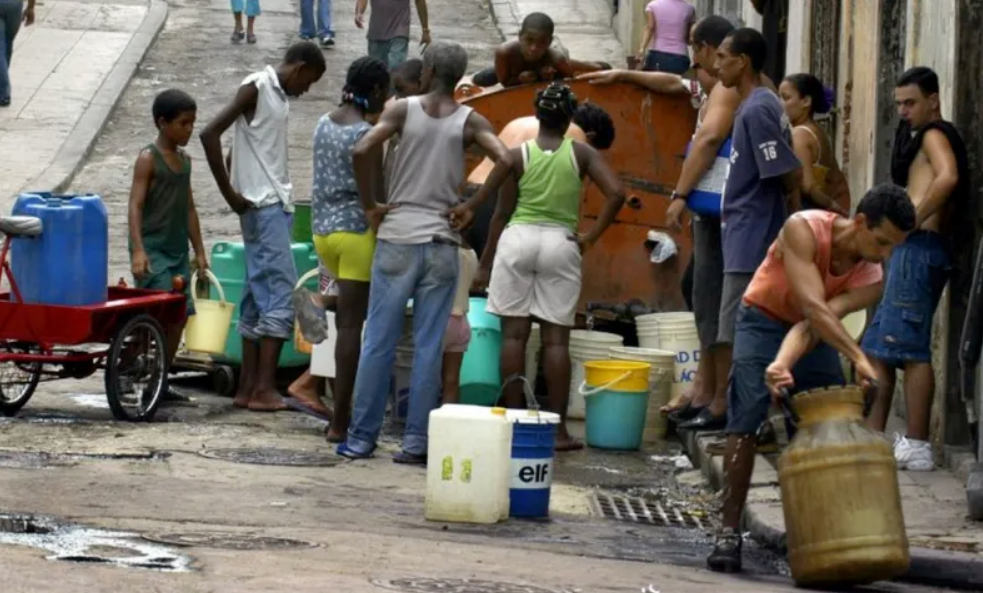
HAVANA TIMES – No, I’m not going to talk about Cuban director Manuel Octavio Gomez’ movie of the same name that premiered in July 1971 and recreates the real life of Antoñica Izquierdo, a peasant from Pinar del Rio who lived in the latter half of the 1930s and was said to have the ability to cure diseases with water. That movie was the first fictional Cuban feature film shot in color and with direct sound.
However, the days of water I’m talking about are the current vicissitudes and risky adventures of the carefully tracked days when it’s our turn to receive the precious liquid in Havana. I specify the location, because I’ll be referring to certain things about my past and present life here in these regional domains of my existence. However, [regarding water], instead of “in Havana,” I could say “in Cuba,” and I suppose even outside our borders, because the problem of water is a topic of planetary scope.
I was going to say galactic importance, thinking about the Milky Way, since the products related to that also suffer a superlative degree of shortage here. But anyway, the matter we’re talking about, let’s say the million-dollar topic, is water. No reason to tangle the strands.
We’re lucky in my neighborhood – really! – that our water is guaranteed to arrive regularly every third day, from before nine am until nearly three or four pm, sometimes until five. Although that’s not always true either, in part, because every so often they turn it on at noon and by three it’s already gone.
It has its oscillations. The reason could easily be that the one charged with the task of going out to open the regulating valves for the flow or stoppage of water didn’t get assigned the fuel needed for their means of transportation. Okay then! Because everyone understands that the gasoline situation has its own separate problematic.
On other occasions, it’s a matter of some repairs being undertaken, because they’re working to modernize different sectors of the city’s hydraulic network. When doing this, it becomes necessary to close some lines for a number of days, and if the municipality or a par


